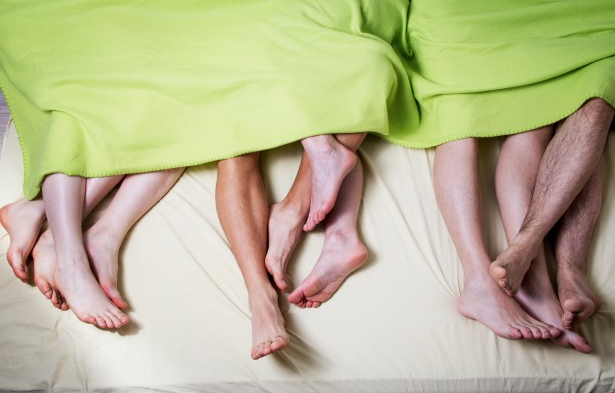
Libido lies: 32% of people still think men need sex more than women
The long-held absurd belief that men have massive libidos and women are pretty indifferent when it comes to sex is still a prominent myth in our society, and new research proves this point.
A new study commissioned by the End Violence Against Women Coalition has shown that almost half of people still reckon that men have stronger sex drives than women.
3,922 British adults were quizzed on heterosexual relationships, and one-third of people (32 percent) think men need sex more than women (WOW) compared to only one percent who said the opposite.

45 percent of the study's participants said that they think a man is more likely to initiate sex, compared with three percent who believe the opposite.
43 percent said that both sexes were equally responsible for starting sex. One-in-10 of respondents claimed that a woman decides when the intimate act has finished, compared with 36 percent for men and 38 percent who said both.
"Although it's good to find that three-quarters of adults believe men and women are both likely to enjoy sex, what we clearly also have are persistent, widely held views about who sex is primarily 'for', who 'needs' it and whose pleasure matters,” said Sarah Green, director of the organisation.

"This is a cornerstone of equality as much as equal pay and shared parenting, but 'the orgasm gap' is perhaps not as widely discussed as some other key equality issues."
Interestingly, pensioners are more likely than 18-24-year-olds to believe both partners enjoy sex. People aged 65 and older felt both a man and woman would equally enjoy sex.
Among 18-24-year-olds, just 25 percent believe having sex is a mutual decision, while 50 percent think it is up to the man to decide. Just 10 percent believe it’s up to women to choose whether they have sex.

7 percent think women are more likely to "go along with sex to keep their partner happy", compared with only 2 percent who thought the same of men.
Dr Fiona Vera Gray, research fellow at Durham Law School and expert on sexual harassment and pornography, said: "This report shows how far we've got to go in changing outdated ideas about women as sexual gatekeepers."
Research has recently proven that men and women are equally aroused by sexual images, showing that sex makes no difference to the response to sexual visual stimuli.
The Max Planck Institute for Biological Cybernetics in Tübingen, Germany published the news in the scientific journal PNAS last month, saying; "Erotic pictures and videos are widely assumed to induce differential response due to sexual duality," the researchers stated.




















